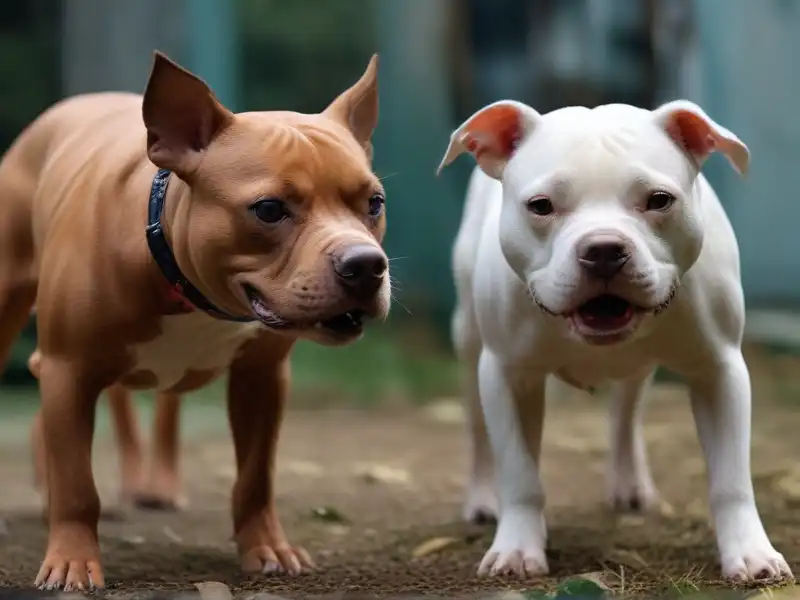As a result, pitbulls found themselves without a designated role, leading to their emergence as working dogs on farms and in homes. Their loyalty, intelligence, and trainability made them well-suited for a variety of tasks, from herding livestock to protecting property. Pitbulls quickly gained a reputation as versatile and hardworking dogs, valued for their dedication to their owners.
Pitbulls in America
In the mid-19th century, pitbulls made their way to America, where they were embraced for their strong work ethic and versatility. They were used as farm dogs, hunting companions, and family pets. Unfortunately, pitbulls also became associated with dogfighting, a brutal and illegal blood sport that exploited their natural aggression and fighting instincts.
Despite the dark shadow cast by dogfighting, pitbulls continued to be valued for their loyalty and affection towards their owners. They were known for their love of children and their willingness to protect their families at all costs. In fact, pitbulls were often referred to as "nanny dogs" due to their gentle and protective nature around children.

The Rise of Breed Stereotypes
In recent decades, pitbulls have become the target of breed-specific legislation and negative media portrayals. They have been unfairly labeled as aggressive and dangerous dogs, leading to widespread discrimination and misconceptions about the breed. However, many experts and advocates argue that it is not the breed itself that is inherently dangerous, but rather irresponsible ownership and breeding practices that contribute to aggressive behavior in dogs.
Despite the challenges they face, pitbulls continue to prove themselves as loving and loyal companions. Countless stories abound of pitbulls saving lives, providing emotional support, and bringing joy to their owners. As more people become educated about the true nature of pitbulls, the negative stereotypes surrounding the breed are slowly being dismantled.
Pitbulls as Family Pets
Today, pitbulls are increasingly finding their place as beloved family pets. Their affectionate and playful demeanor endears them to people of all ages, making them popular choices for households looking for a loyal and loving companion. Many pitbull owners attest to the incredible bond they share with their dogs, describing them as incredibly devoted and emotionally intuitive animals.
As more and more people open their hearts and homes to pitbulls, the breed's reputation is gradually being rehabilitated. Organizations dedicated to pitbull rescue and advocacy work tirelessly to promote responsible ownership and combat breed discrimination. Through education, outreach, and positive representation, pitbulls are slowly but surely shedding their troubled past and emerging as valued members of the pet community.
In conclusion, the history of pitbulls is a testament to the resilience and adaptability of this remarkable breed. From their origins as bull-baiting dogs to their current status as cherished family pets, pitbulls have undergone a remarkable transformation. Despite the challenges they face, pitbulls continue to demonstrate their worth as loyal, loving, and intelligent animals. By understanding and appreciating the rich history of pitbulls, we can help to break down the barriers that prevent these dogs from being fully embraced and appreciated for the wonderful companions they truly are.
